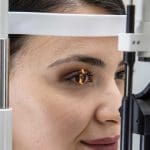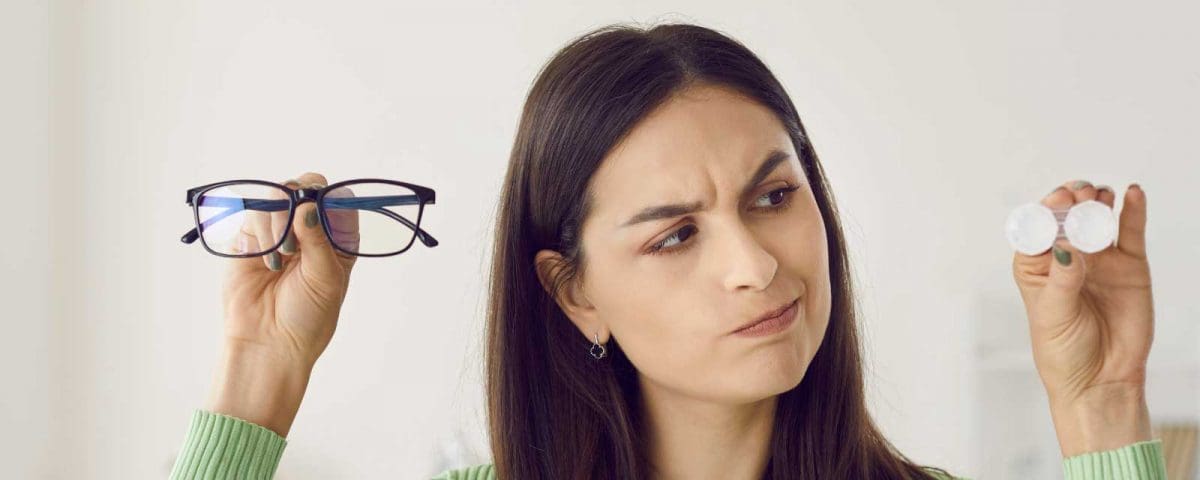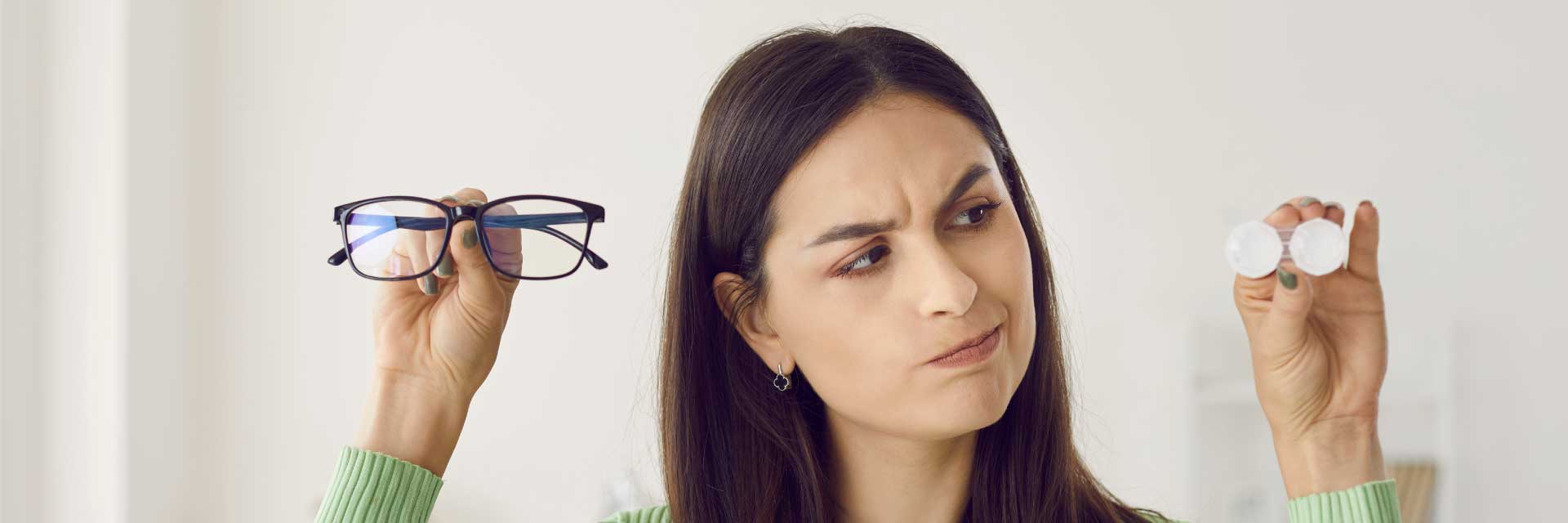


Why Is My Blurry Vision Not Corrected With Glasses?
June 23, 2023


What Is Keratoconus, And What Are Its Effects?
July 19, 2023



I Was Told My Eyes Could Be Helped Only With Contacts. But My Contacts Don’t Fit Well.
Do your contact lenses keep slipping out of your eyes? Are you still facing issues with your vision even after getting contact lenses? If yes, you may have keratoconus. If you are diagnosed with keratoconus, you need an alternative to traditional soft contact lenses.
While soft contact lenses can offer a great deal of visual acuity and comfort for individuals with a wide range of vision impairments, they are generally not the right solution for keratoconus. Keratoconus is a condition that’s characterized by the deformation and thinning of the corneas in both eyes.
The conical shape affects how your cornea refracts light, resulting in distorted or blurred vision. Since regular soft contact lenses sit on the corneal surface, any irregularities can make it difficult (or even impossible) to achieve adequate vision correction and optimal fit for keratoconus patients. If you have keratoconus, other options can help deliver better visual correction for your condition.
RGP Lenses
A patient suffering from keratoconus can usually achieve ideal results by wearing well-fitted RGP lenses. These hard plastic contact lenses are much better at retaining their position and shape in the eye than traditional soft contact lenses. In virtually any patient, this is a sharper vision correction than conventional soft contact lenses provide. However, many people prefer soft contact lenses because they feel more comfortable initially.
Nevertheless, in the case of keratoconus or other visual conditions characterized by irregularly shaped cornea, traditional lenses will mold to the same shape as your cornea, making them unsuitable for treatment. Well-fitted RGP lenses will offer you better stability in shape. However, they may shift a little whenever you blink, especially in severe cases of keratoconus.
How Do They Work?
The material used to make RGP lenses combines PMMA, silicon, and a porous plastic known as a fluoropolymer. Since these lenses are rigid, they must fit your eyes perfectly, or they might cause irritation when you wear them. Before you request your custom lenses, Dr. Ramachandaran from Maxivision Eye Care will measure your eyes. Your eye shape will help determine what shape lens will be the best fit for you.
Before RGP lenses, patients used to wear hard lenses. These lenses did not allow oxygen to pass through and permitted tears to get between the cornea and the lenses. These tears helped supply oxygen to the cornea. Generally, hard lenses had to be made a little smaller to enable tears to pass between them easily. RGP lenses, on the other hand, allow oxygen to pass directly through the lenses. RGP lenses are larger than hard lenses and sit much closer to the eye.
Who Is A Suitable Candidate For RGP Lenses?
Though RGP lenses are not as popular as traditional soft lenses, they can be an ideal choice for you if:
- You are willing to go through an adaptation period to get a clearer vision
- You have conditions like nearsightedness, farsightedness, keratoconus, astigmatism, presbyopia, and corneal ectasia.
- Soft lenses fail to improve your keratoconus condition.
Besides vision impairment, there are several other reasons why people choose to wear RGP lenses. For example, some professional athletes wear well-fitted RGP lenses to help improve their focus when playing. Other people wear them to change the natural color of their eyes.
Contact Maxivision Eye Care for Help!
Well-fitted RGP lenses can help you correct visual impairments like keratoconus, nearsightedness, and farsightedness. You can use these lenses as an alternative to soft contact lenses and eyeglasses. These lenses allow oxygen to pass through them to your eye, making them a better option than other hard lenses. If you have any questions about RGP lenses, we suggest you contact Maxivision Eye Care professionals. Call our team at 630-904-1900 to book your consultation today!
